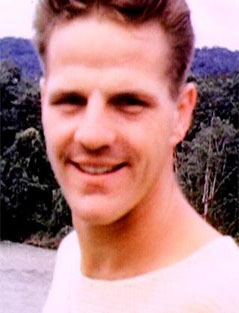A Quote by Greg Iles
I have not written a perfect sentence, in the literary sense. It's a lot easier to throw a perfect pass than to write a perfect sentence, if that sentence is meant to perform more than a mechanical function.
Related Quotes
I can tell you that in my modern life I enjoy language. I enjoy words, their meaning, what they sound like to the ear, what they sound like to the listener. I strive to write the perfect sentence in all that I do, and when I write [the] perfect sentence I know it. If I had a second life I'd be a librettist for Broadway musicals.
The first sentence of the truth is always the hardest. Each of us had a first sentence, and most of us found the strength to say it out loud to someone who deserved to hear it. What we hoped, and what we found, was that the second sentence of the truth is always easier than the first, and the third sentence is even easier than that. Suddenly you are speaking the truth in paragraphs, in pages. The fear, the nervousness, is still there, but it is joined by a new confidence. All along, you've used the first sentence as a lock. But now you find that it's the key.
Writing keeps me at my desk, constantly trying to write a perfect sentence. It is a great privilege to make one's living from writing sentences. The sentence is the greatest invention of civilization. To sit all day long assembling these extraordinary strings of words is a marvelous thing. I couldn't ask for anything better. It's as near to godliness as I can get.
Writing is linear and sequential; Sentence B must follow Sentence A, and Sentence C must follow Sentence B, and eventually you get to Sentence Z. The hard part of writing isn't the writing; it's the thinking. You can solve most of your writing problems if you stop after every sentence and ask: What does the reader need to know next?
It's kind of like sentencing. A lot of people say that we have a heavy sentence for this crime and a light sentence for another crime, and what we ought to do is reduce the heavy sentence so it's more in line with the other. Wrong. In most cases we ought to increase the light sentence and make it compatible with the heavy sentence, and be serious about punishment because we are becoming too tolerant as a society, folks, especially of crime, in too many parts of the country.
But sometimes when I was starting a new story and I could not get it going, I would sit in front of the fire and squeeze the peel of the little oranges into the edge of the flame and watch the sputter of blue that they made. I would stand and look out over the roofs of Paris and think, 'Do not worry. You have always written before and you will write now. All you have to do is write one true sentence. Write the truest sentence that you know.' So finally I would write one true sentence, and then go on from there.
Most people write the same sentence over and over again. The same number of words-say, 8-10, or 10-12. The same sentence structure. Try to become stretchy-if you generally write 8 words, throw a 20 word sentence in there, and a few three-word shorties. If you're generally a 20 word writer, make sure you throw in some threes, fivers and sevens, just to keep the reader from going crosseyed.




































